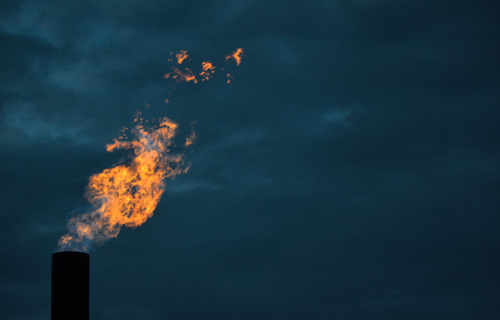Top 5 Stories Worth Reading — August 2024
Aug 29, 2024
Protect the Right to Vote: Be a Poll Worker on Election Day Sign Up Today
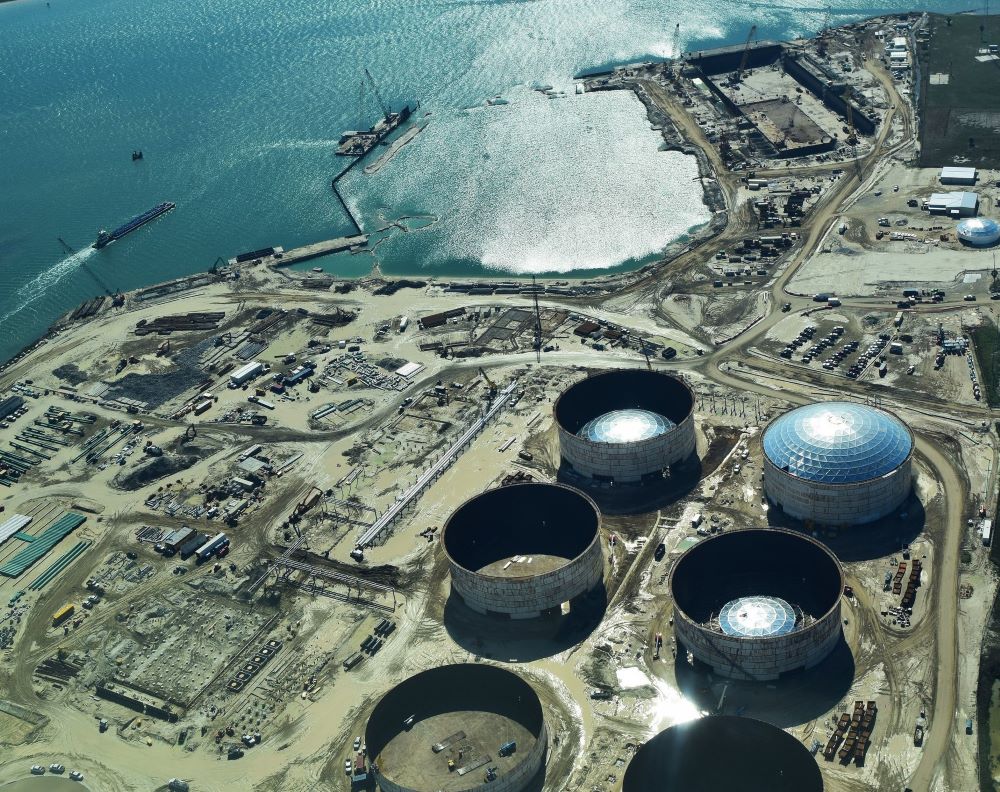 An LNG export terminal on the Gulf of Mexico in Texas. Credit: Ted Auch, FracTracker Alliance, 2019, via Flickr.
An LNG export terminal on the Gulf of Mexico in Texas. Credit: Ted Auch, FracTracker Alliance, 2019, via Flickr.
If you’re like us, you’ve seen the term “LNG” in the news a lot this year. Though LNG, or liquefied methane gas, has been produced for over half a century, its devastating impacts on the climate and on communities have come into sharper focus as LNG exports have ramped up in recent years.
LNG was thrust into the media spotlight in January when President Biden paused approvals of all new U.S. LNG export projects to allow the Department of Energy (DOE) to evaluate the impact of these projects on the public. While LCV, other environmental groups, and many frontline community leaders celebrated the pause, it has been met with fierce opposition from extreme MAGA Republicans in Congress and the oil and gas industry who are spreading misinformation and outright lies about the decision.
The bottom line? LNG is a super-polluter with disastrous climate impacts, and LNG facilities harm nearby communities, which are often Black, Latine, and Indigenous communities and low-wealth communities. With the climate and the health of our communities at stake, President Biden’s recent pause on new LNG exports is a huge win for people and the planet.
LNG is a product composed almost entirely of methane gas, a greenhouse gas that is 80 times more potent than carbon dioxide over a 20-year period. It has been falsely touted by the oil and gas industry and their congressional allies as “natural gas” and a clean energy alternative to other fossil fuels, when in fact its lifecycle emissions can be much higher than coal.
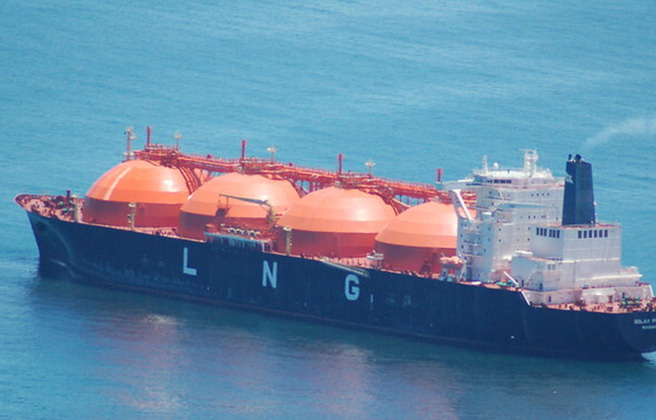
LNG exports from the U.S., first launched from Alaska, have boomed since the first facilities in the Lower 48 states opened in 2016. The impacts of LNG on the environment, economy, and the health and safety of our communities have been widely misrepresented, beginning with the name itself– liquefied natural gas.
Using the term “natural gas” implies to consumers that LNG is a much cleaner and safer product than it actually is. Marketing for natural gas has been embedded in culture in the U.S. for decades, but the term is misleading and greenwashed and its use is deceiving consumers. A more accurate term for the product is “methane gas.”
LNG exports are harmful in several ways, starting with the health risks and economic impacts seen by communities near LNG facilities.
LNG facilities contribute to toxic pollution in communities across the country, especially along the Gulf Coast which is home to an ever-increasing number of hazardous LNG export facilities. Pollution from these facilities, which includes methane emissions, sulfur dioxide, carbon monoxide, and particulate matter, is detrimental to the health of residents in nearby communities, who are often majority Black, Latine, Indigenous, and low-wealth.
For residents of these communities, who experience elevated risk for respiratory illnesses and a variety of cancers even before the added risk from LNG pollution, stopping the buildout of LNG near their homes is, quite literally, a matter of life and death.
Carmen Hernandez, a Comadre from Gregory, Texas on the importance of taking action to stop the buildout of LNG in her community.
Activists with Chispa Texas, a program of LCV, have seen the devastating impacts of LNG on their communities firsthand. They have watched as massive LNG export facilities have degraded coastal towns and wetlands in Texas, and have felt the effects of the toxic facilities on their health and the climate.
Chispa Texas and the “Comadres,” a group of women from the Texas Gulf Coast who are fighting to protect the health of their communities and of future generations, are leading the charge against the expansion of LNG exporting and its polluting facilities. Through testifying at hearings in Texas, circulating petitions, organizing community educational events, meeting with elected officials, and telling their stories and encouraging others to do the same, Chispa Texas and the Comadres are driving the conversation on LNG in Texas and nationwide.
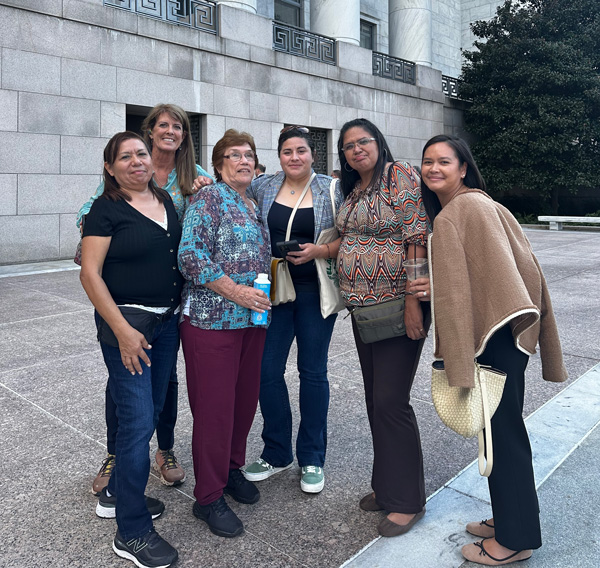
In September 2023, several Comadres headed to Washington D.C. where they met with congressional representatives and the Department of Energy to tell their stories and demand the administration take action to protect the lives of those impacted by the buildout of LNG export infrastructure. Read more about their experience in Chispa’s blog post: Gregory, TX Residents Lobby to Save Their Town From LNG.
The same communities that are overburdened by LNG infrastructure and pollution have also seen their energy prices increase as a result of increased LNG exports. As the U.S. exports more and more LNG, domestic energy prices have increased and become increasingly tied to global markets, making them more volatile. That cost burden falls hardest on families who are spending a high percentage of their income on energy bills, primarily in communities of low-wealth and majority Black, Latine, and Indigenous communities.
Increased LNG exports have exacerbated existing economic inequality for communities of color, particularly in Texas, in other ways too. For example, home values in the Gulf region have depreciated due to the growing number of heavily polluting facilities in these communities.
A south Texas resident records a toxic LNG facility operating in the middle of the night, preventing her and her family from getting a good night’s sleep. The round-the-clock noise and construction is one of the reasons home values in this community have dropped in recent years.
Not only does exporting LNG devastate communities, but it also wreaks havoc on the environment. LNG is just as polluting as other fossil fuels in terms of lifecycle emissions. In fact, researchers have found that LNG produced in the U.S., exported to, and burned in Europe and Asia produces 24% more greenhouse gas emissions than coal extracted and burned in those regions. Additionally, LNG is primarily composed of methane, which is over 80 times more effective at trapping heat in the atmosphere than carbon dioxide over a 20-year period.
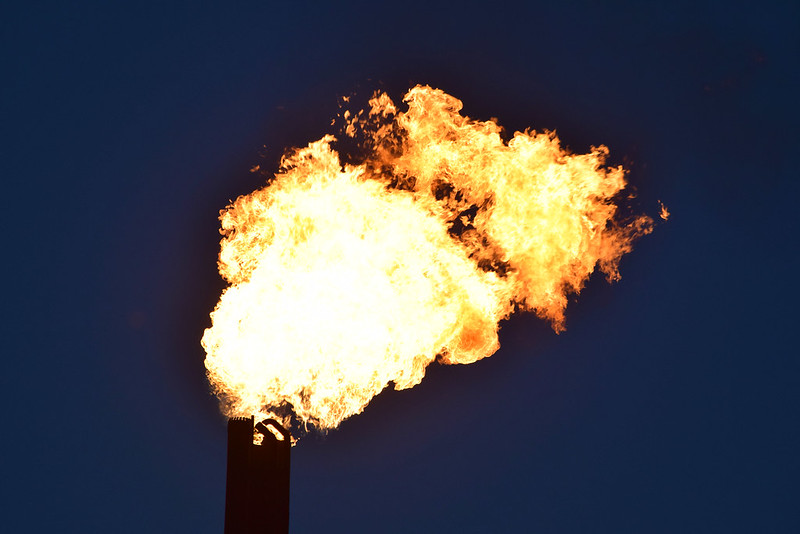
If we continue to expand LNG exports in the U.S., it will make achieving our climate goals nearly impossible. The emissions produced by the 24 currently proposed LNG facilities would be equivalent to the emissions of 681 coal plants. Moving forward with their construction and operation would undermine global efforts to limit warming and threaten to push global temperature over the 1.5° Celsius threshold outlined in the Paris Agreement to limit the worst effects of climate change.
Despite LNG’s negative impacts on communities and the environment, extreme MAGA Republicans in Congress are trying to repeal Biden’s pause on new LNG exports, including the House passing legislation earlier this spring that would repeal restrictions on methane gas exports and roll back the federal government’s responsibility to examine the full impacts of proposed LNG export facilities.
While MAGA extremists are attempting to clear the way to ramp up LNG exports, the practice of exporting LNG is harming real people’s health, safety, and economic well-being – as well as jeopardizing climate progress. The Department of Energy (DOE) must take each of these factors into consideration as it completes its public interest evaluation of LNG exports.
Join us in calling on the DOE to ensure its analysis includes the full environmental justice, climate, and economic costs of LNG exports. When a thorough analysis is done, it is clear that continued expansion of LNG exports is not in the public interest.
Take Action
The Biden-Harris administration's pause on approvals of new liquefied methane gas (LNG) exports projects will allow the Department of Energy (DOE) to better determine whether additional facilities are truly in the public interest. This pause is an opportunity to ensure a comprehensive analysis reflecting the latest science on the risks of LNG exports. Tell the DOE: its analysis must include the full environmental justice, climate, and economic costs of LNG exports.
Send a Message Now